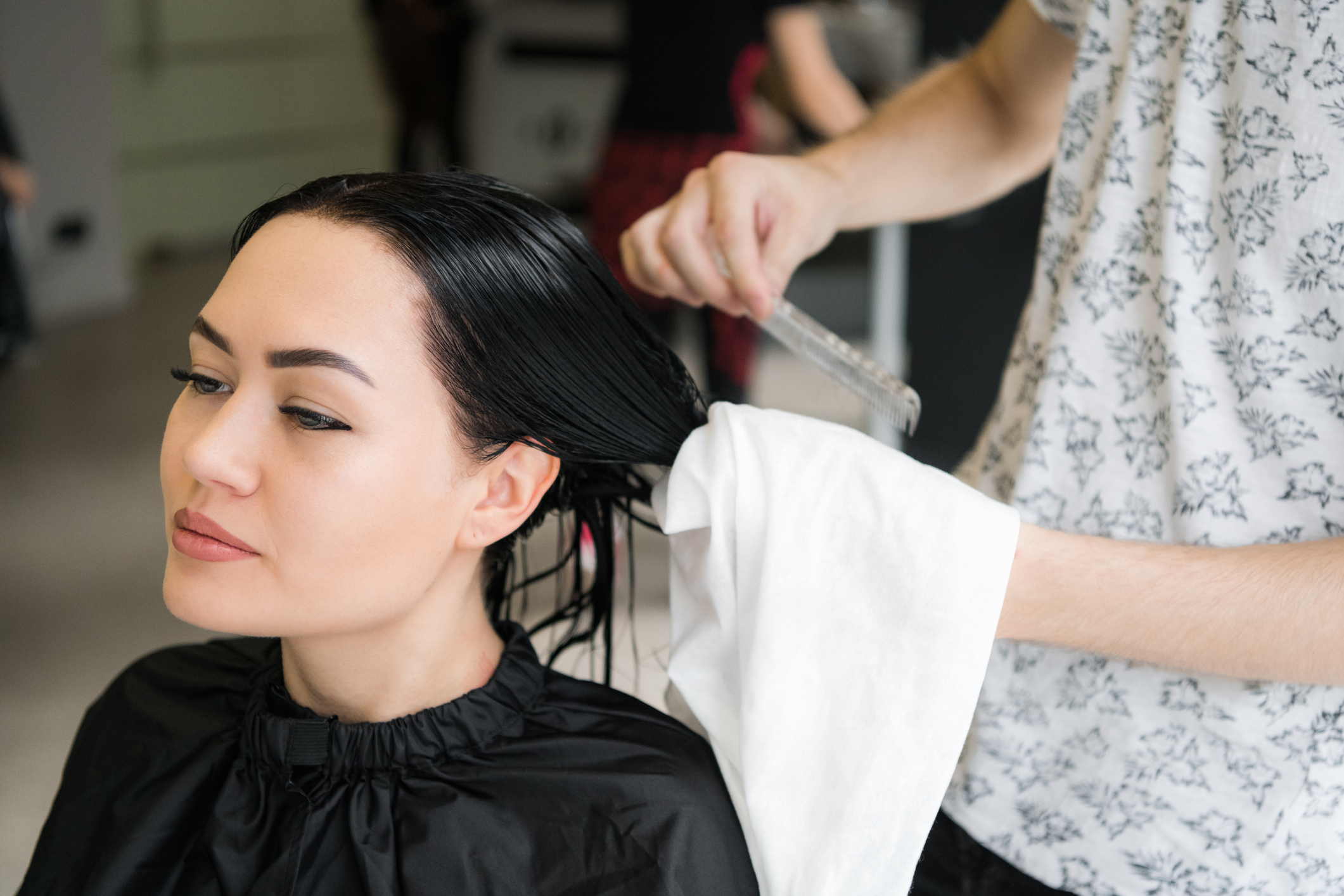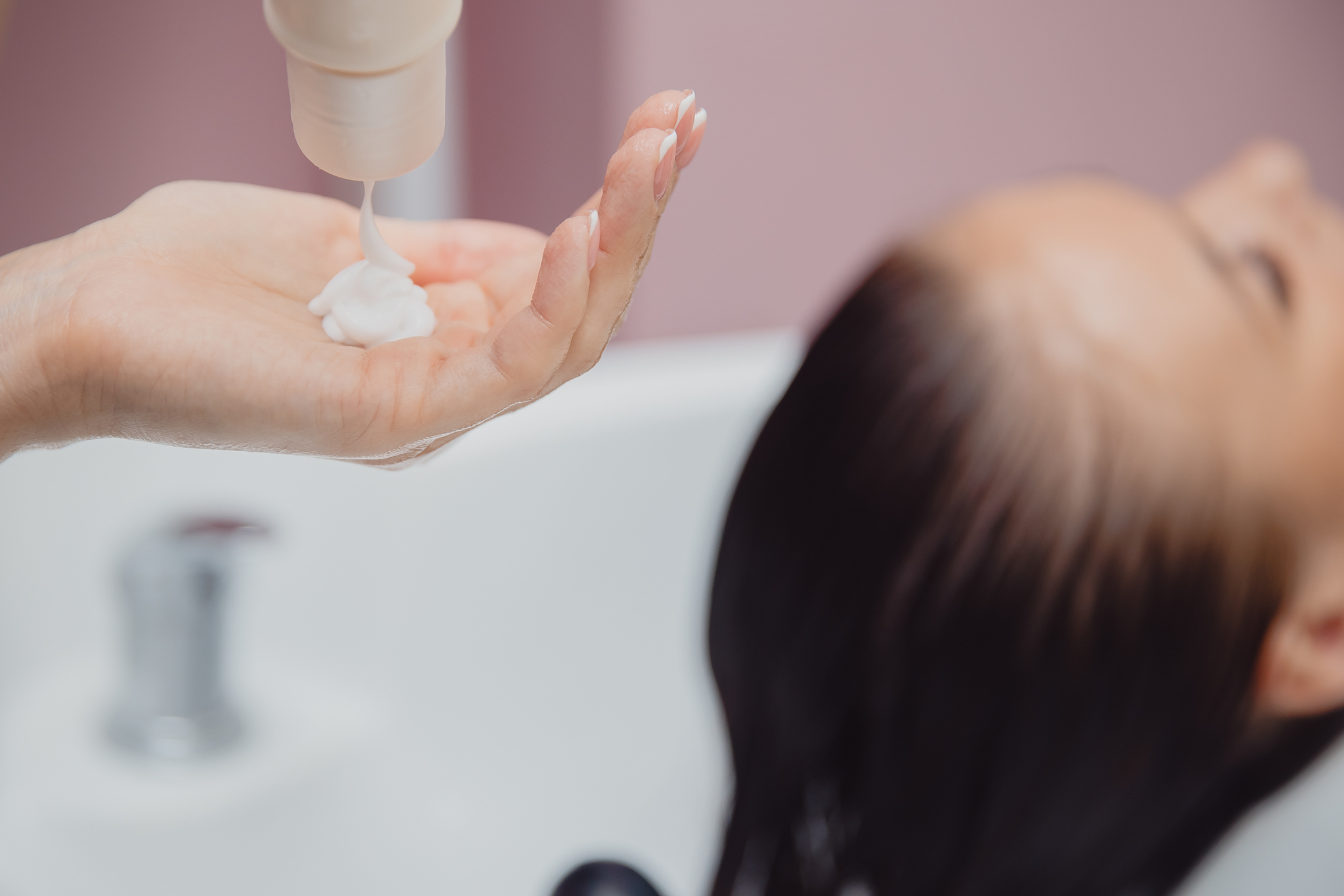Hair Care Club: Combat Scalp Psoriasis and Regain Your Confidence with These Tips
Psoriasis is a skin condition associated with an overactive immune system. It causes red, flaky patches that often itch, burn, or cause discomfort and often gets mistaken for other common conditions that result in flaking, like dandruff. But worry not hair care club! Begin your journey to explore what might work for you in your battle against scalp psoriasis right here!
Dietary Changes for Scalp Psoriasis

In addition to medical treatments, dietary changes can also help ease scalp psoriasis symptoms. Developing a diet rich in anti-inflammatory foods may improve symptoms and enhance the effectiveness of prescribed treatments. In this slide, we'll discuss dietary changes that can alleviate scalp psoriasis.
Fruits and vegetables are packed with antioxidants, which are known to reduce inflammation. Adding a variety of colorful fruits and veggies like blueberries, bell peppers, leafy greens, cherries, tomatoes, and squash can give your body an antioxidant boost. Omega-3-rich foods like fish, flaxseed, and walnuts can also reduce inflammation and in turn, improve psoriasis symptoms.
Some research suggests that gluten can exacerbate symptoms of psoriasis in certain individuals. Therefore, following a gluten-free diet might ease symptoms in those with a sensitivity or intolerance.
Mind-Body Therapies

Stress is known to trigger flare-ups in those suffering from psoriasis. Mind-body therapies, such as meditation, mindfulness, yoga, and deep-breathing exercises, can all help alleviate the stress associated with this condition, which in turn, can help manage symptoms. This slide will delve into how these methods can be used to manage stress levels.
Meditation and mindfulness have been proven to decrease stress and improve mental wellbeing, which can be beneficial when dealing with a chronic condition like scalp psoriasis. They promote relaxation and an increased awareness of one’s self, subsequently reducing the impact of stress on the body.
Similarly, physical exercises like yoga not only promote physical wellbeing but also mental health, which is crucial when combating an ailment like psoriasis. Regular yoga practice can help decrease inflammation and stress that may exacerbate psoriasis symptoms.
Topical Treatments for Scalp Psoriasis

Topical treatments are often the first line of defense against scalp psoriasis. They can reduce inflammation, slow down excessive cell turnover, and provide relief from itching. Here, we will be discussing the various kinds of topical treatments available for scalp psoriasis.
Topical corticosteroids are commonly prescribed for mild-to-moderate psoriasis. These are powerful anti-inflammatories that ease inflammation and slow down cell turnover, relieving symptoms. Another option, Anthralin, slows down the rapid growth of skin cells and decreases inflammation.
Calcipotriene and Calcitriol are forms of vitamin D3 that slow down skin cell growth, flatten lesions, and eliminate scales. Coal-tar products, available in over-the-counter shampoos, creams, and oils, can also be used for scalp psoriasis relief.
Light Therapy for Scalp Psoriasis

Light therapy, also known as phototherapy, uses different types of light to treat psoriasis lesions. This slide will explain how it works and the benefits that can be derived from it.
In light therapy, the skin is exposed to ultraviolet A (UVA) or ultraviolet B (UVB) lights. The light can slow skin cell turnover and reduce scaling and inflammation. Some patients may use a combination of UVA and a medication called psoralen, which makes the skin more sensitive to the effects of light.
While the majority of light therapy sessions are done in a doctor's office, certain types of UVB light therapy can also be done at home. However, home light therapy should be done under the guidance of a healthcare professional to ensure the best results.
Systemic Medications for Severe Scalp Psoriasis

For stubborn cases, systemic medications may be recommended. These medications, such as methotrexate and cyclosporine, are used for moderate to severe scalp psoriasis or in cases where scalp psoriasis resists other treatments.
Methotrexate is a medication that can slow the production of skin cells and suppress inflammation. It's taken once a week and can help alleviate symptoms of severe scalp psoriasis. Another option, Cyclosporine, suppresses the immune system to slow skin cell turnover and reduce inflammation.
Sometimes, health professionals might recommend short-term use of systemic medications, in combination with topical treatments, to effectively treat stubborn cases. Still, the dosage and length of treatment can vary based on the patient's overall health and response to treatment.